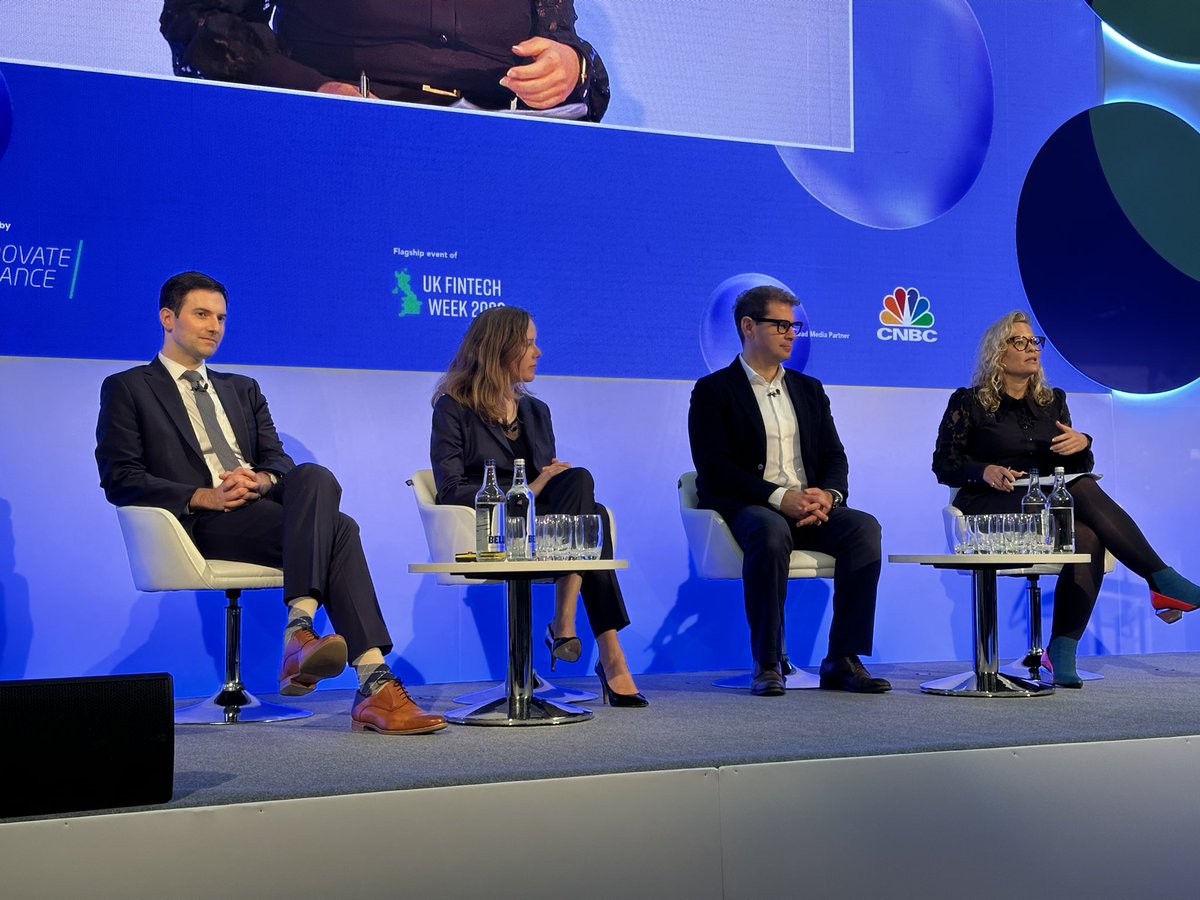We'll hear from Caroline Butler of @BNYMellon, Nadine Chakar of @StateStreet, Justin Chapman of @NorthernTrust, Stephen Prosperi of @The_DTCC, and Samuel Riley of @Clearstream.
#Sibos #Sibos2022
#Sibos #Sibos2022

"It makes sense for us to lead with custody," says Butler. "We see it as foundational - execution is next. Clients come to us for trust, innovation, and client experience. Interoperability is key."
#Sibos #Sibos2022
#Sibos #Sibos2022

"We've started a bit later than some but we hope to bring a full solution to market next year," says Chakar. "#Tokenisation is where 80% of our efforts are going. We're tokenising collateral for settlement. We want to 'melt the middle office away'. Elephants can dance."
#Sibos
#Sibos

"Our clients don't care that they're *digital* assets, they just want access to assets," says Chapman. "Crypto is the big use case. The rest is experimentation, but that will change over the next 12-24 months."
#Sibos #Sibos2022
#Sibos #Sibos2022

"My regulatory bill is bigger than my technical and operational one," says Chapman.
#Sibos #Sibos2022
#Sibos #Sibos2022

"We don't want the market to move at the rate of the slowest participant," says Prosperi.
#Sibos #Sibos2022
#Sibos #Sibos2022

"We taking existing assets in the CSD and digitising them natively," says Riley. "We need to make sure there is some kind of trade in what we're doing, such as demand or efficiency."
#Sibos #Sibos2022
#Sibos #Sibos2022
So what's holding back broader institutional adoption? "It's regulation," says Jankar. Riley agrees.
#Sibos #Sibos2022
#Sibos #Sibos2022

"We need harmonised regulations that will level the playing field," says Butler. "Institutional investors are waiting to get in - but they need the safety guard rails.
#Sibos #Sibos2022
#Sibos #Sibos2022

The audience agrees: regulation is the overwhelming favourite in terms of what is holding back institutional adoption of #DigitalAssets.
#Sibos #Sibos2022
#Sibos #Sibos2022

"This was the number 1 theme of Sibos: the fear we have is to repeat the sins of the past and not collaborate, building separately," says Butler.
#Sibos #Sibos2022
#Sibos #Sibos2022

"Working with fintechs brings us a new perspective, it's a breath of fresh hair and it's really moved us forward," says Nakar.
#Sibos #Sibos2022
#Sibos #Sibos2022

The percentage of asset servicers' AUC that the audience expects to be digital by 2030...
#Sibos #Sibos2022
#Sibos #Sibos2022

• • •
Missing some Tweet in this thread? You can try to
force a refresh
















